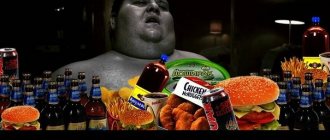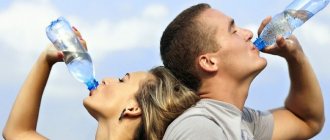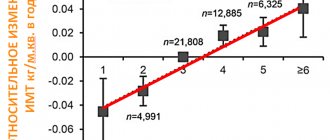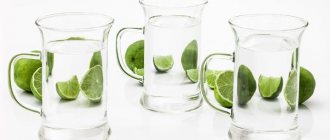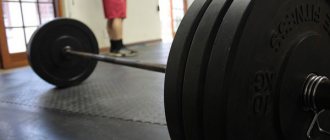- home
- Articles about training
- Nutrition for gaining muscle mass for men
Proper nutrition for gaining muscle mass is no less important than intense strength training. If, despite working hard in the gym, your muscles are not growing, this means that you are making one of the common mistakes.
● Eat too little. Starvation diets are not helpful in building muscle. Energy costs need to be replenished regularly.
● On the contrary, you eat too much and incorrectly: you overdo simple carbohydrates (baked goods, fruits, sweets), and do not maintain the balance of proteins, fats and carbohydrates (BJU). Muscle growth occurs, but it is not noticeable under the layer of fat.
● You do not follow the correct diet. For example, during the day you take uneven intervals between meals or don’t eat all day, and by the evening you break down. This diet is also not suitable for gaining muscle mass: metabolism slows down, nutrients simply do not have time to be absorbed.
Calorie content of food and BZHU ratio
Nutrition for gaining muscle mass for men depends primarily on body weight and energy expenditure. To gain the minimum required amount of calories daily, calculate your individual BJU ratio using the formula 1 kg of weight = 2/0.7/4 in grams, respectively.
When drawing up a proper nutrition plan, focus on the following calorie content: 1 g protein/carbohydrate = 4 Kcal, 1 g fat = 9 Kcal. Carbohydrates will serve as your main source of energy during training; proteins will go towards muscle growth and strengthening. The richest foods in protein are meat and dairy. Soybeans, legumes and nuts contain many important amino acids.
The given formula for calculating BZHU is average. When gaining weight, a lot depends on your body type and metabolic rate. If muscle growth does not occur over time (for example, due to a fast metabolism), change the proportions in the diet towards more carbohydrates. Study your body and experiment!
Nutrition for gaining lean muscle mass
Many people have probably heard a lot about what “lean” muscle mass is. The essence of this task is to gain as much meat as possible with minimal fat deposition. This is easiest to do with natural products only for mesomorph and ectomorph men (but it is also more difficult for them to gain muscle mass, and it takes longer). In women, nature is designed to store more fat (to convert testosterone into estrogen), while in men, high testosterone (compared to women), on the contrary, promotes the growth of muscle tissue. Therefore, women should pay special attention to sources of carbohydrates. Here tables with the glycemic index of foods will come to the rescue - you should choose foods with the lowest GI. The same applies to endomorphic body types, regardless of gender. To gain “lean” muscle mass, you need:
- monitor the quality and calorie content of products,
- consume the required amount of calories, and do not create an excess of them,
- drink enough water,
- be sure to include unsaturated fatty acids (omega) in your diet - they speed up metabolism and help reduce fat deposits,
- consume fast carbohydrates (except for sweets, buns, cakes) only to close the carbohydrate window,
- complex carbohydrates in the diet should be included in pre- and post-training meals, and when using crealcoline, fast carbohydrates can be completely excluded.
Optimal diet
The number of meals in a weight gain diet for men may vary. On average, try to eat little but often: 4-7 times a day with breaks of 2.5-3 hours. At least three meals should contain a significant portion of protein. This diet promotes the production of growth hormones (very important for muscles) and reduces the level of the stress hormone cortisol.
Main meals will look like this.
● Breakfast is vital to fuel your energy for the day ahead. It should consist mainly of carbohydrates (cereals) and proteins (eggs, cheese, cottage cheese, yogurt).
● The main components of the lunch diet are complex carbohydrates (for example, whole wheat pasta) and proteins (meat, fish). If desired, add a vegetable dish seasoned with oil (cold first-pressed and extra virgin oils have the most beneficial properties).
● Make a proper dinner from proteins and vegetables; it is better to postpone carbohydrates until the next morning. Eat your last meal no later than 1-2 hours before bed. It should be an easily digestible protein that won’t weigh on your stomach – kefir or cottage cheese.
You can have a snack between main meals with fresh or dried fruits and dairy products. The best sources of healthy fats in your workout menu are nuts or avocados. Sports nutrition is also great for snacking while gaining muscle mass.


